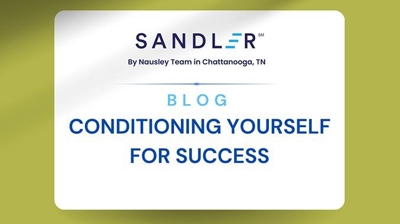1. You don’t tightly target your prospects.
When business is slow, it’s tempting to pitch your story to anyone who will listen. After all, talking to someone—anyone—feels more productive than waiting at your desk for the phone to ring. Right?
Maybe not.
Be choosy about who you approach. Look at your current customer base and identify what makes your best clients your best. Use that insight to build an ideal customer profile. Then, focus your sales prospecting efforts on finding people and companies that closely match that profile. You may talk to fewer people, but you’ll close more business with the right ones.
2. You’re not selective enough about who you meet with.
Someone showing vague “interest” isn’t enough reason to jump into a sales meeting. Before you book an appointment, dig deeper.
Find out why they’re interested and what triggered it. If that interest isn’t backed by a clear need or desire to take action now or in the near future, there’s no real reason to meet. Remember: meetings are for selling, not for just chatting or making friends.
3. You don’t control the conversation.
Your prospects must be willing to talk openly about what’s really going on — the real reasons behind their needs and challenges.
Set clear expectations when you schedule the appointment: your goal is to explore whether what you offer is the right fit, and you’ll be asking questions to fully understand their situation. This prevents conversations from wandering and helps you qualify the opportunity properly.
4. You’re not prepared enough for your meetings.
Far too often, salespeople forget about a meeting until the last minute. Real preparation is more than a quick review of notes or a glance at the prospect’s website.
Ask yourself:
What are the first three questions you’ll ask to kick things off?
What questions will you use to build rapport?
How will you uncover the prospect’s real needs and the reasons behind them?
What commitments will you ask for if there’s a fit?
If you haven’t planned and practiced these questions, you’re might not really prepared.
5. You don’t build credibility or demonstrate true expertise.
Your role is to help prospects see their situation from fresh angles — and recognize issues they may not have noticed before. To do that, you must understand not only your solution, but why people need it, when they need it, and what happens if they don’t fix it.
Use thoughtful questions to guide them toward these discoveries. For example:
“When you asked your team to review the costs tied to this issue, what did they find?”
This type of questioning shows you understand their world — and helps position you as a trusted advisor, not just another salesperson.
____
If you’re ready to strengthen your prospecting, tighten up your sales meetings, and boost your close rates, the Sandler Chattanooga team is here to help.
We specialize in proven sales training, coaching, and reinforcement to help sales professionals and leaders prospect more effectively, qualify better, and win more business — the right business.
Learn more about Sandler Training in Chattanooga and how our team can help you and your sales team succeed.






